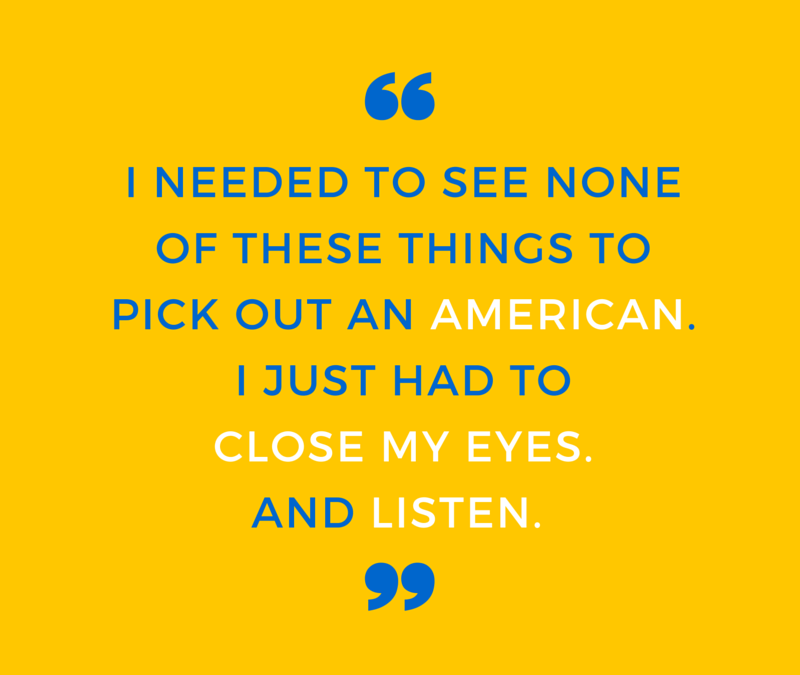My first introduction to the “loud American” was while studying abroad in college. I learned quickly that you could easily pick an American out from the crowd:
Khakis?
Check.
T-shirt and tennis shoes?
Check.
A camera. A fanny pack — and almost always a backpack.
The thing I really noticed, though, was that I needed to see none of these things to pick out an American. I just had to close my eyes. And listen.
Because they were loud. Really loud.
I’ve experienced it many times since then. The woman in Kosovo talking on her cell phone for the entire restaurant to hear how cheap the berries are here. Or the couple in Ireland insisting on showing their waiter how to make proper iced sweet tea—right at their table.
Experiences like these are part of the reason I’m fascinated—and sometimes horrified—by cross-cultural interactions.
Over time, these experiences have made me all the more curious about what it looks like to act appropriately in a culture. Should you completely adapt to your new location, forgetting your own norms and values? Is it OK to act like an American sometimes? To expect to have sweet tea no matter where you are in the world?
Or is there a middle ground in there somewhere—one in which you remain true to who you are, yet you’re keenly aware of cultural cues and differences so you know when and how to adapt?
All of these questions and experiences have led me to what I do today, and to creating this blog. As a traveler, a cultural trainer, a marketer, but even more importantly as someone who values authentic relationships, I believe it’s important to take the time to consider these questions.
Because what if, in these interactions, we simply took the time to learn more about each other? To explore our similarities and differences. To challenge our assumptions. To respect one another in the process. And yes, maybe even offend each other from time to time.
In the end, these are the kind of authentic relationships forged amidst the hard work of stretching our horizons, learning to understand and even appreciate one another—including the value of a cup of robust, dark tea with no sugar in sight—that allow the world to reap some of the rewards it needs most: greater understanding and insight, innovation fueled by diverse thinking and decision-making based on knowledge, rather than fear of what we do not know or understand.
Looking forward to the conversation…


Recent Comments